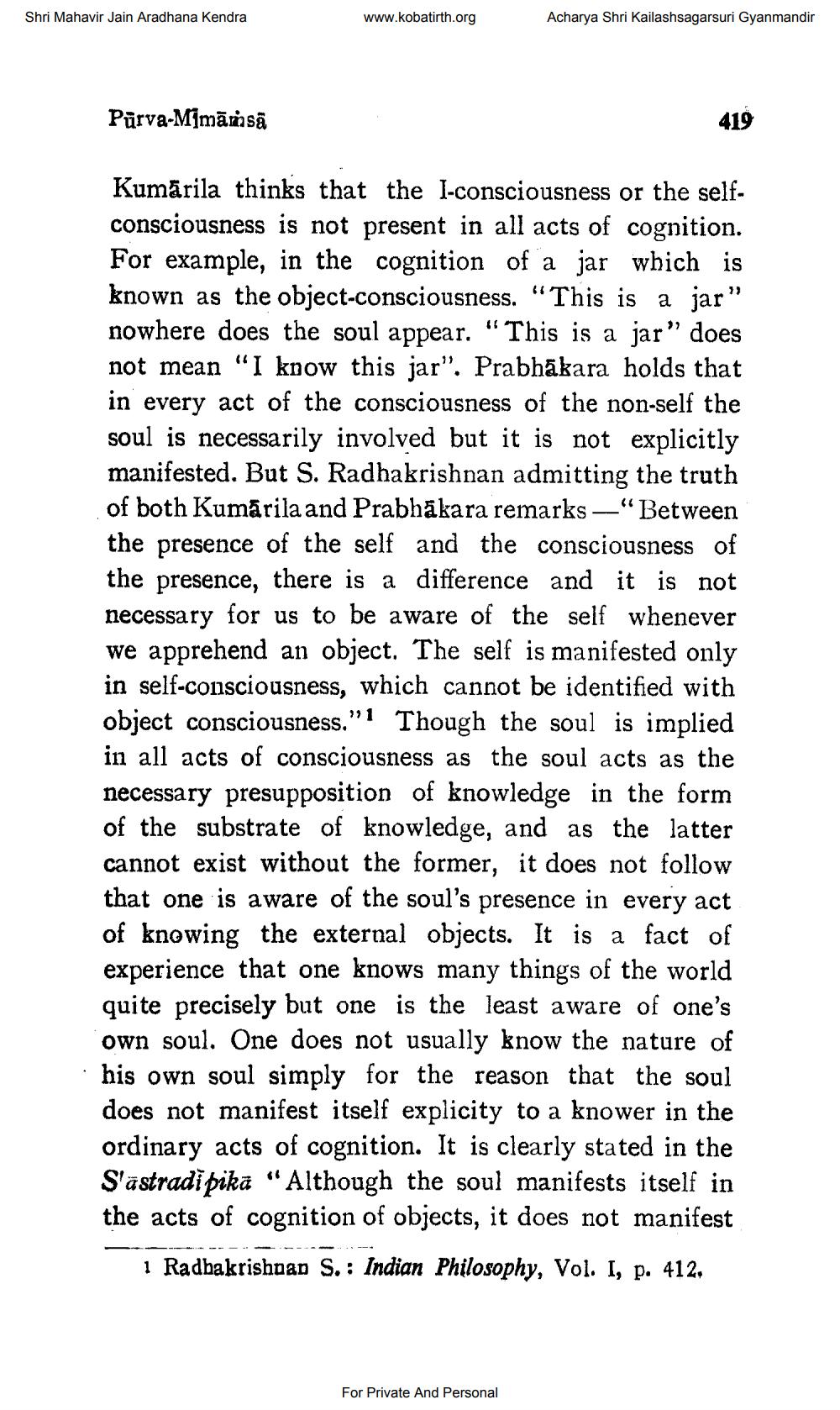________________
Shri Mahavir Jain Aradhana Kendra
www.kobatirth.org
Acharya Shri Kailashsagarsuri Gyanmandir
Pūrva-Msmānsa
419
Kumärila thinks that the I-consciousness or the selfconsciousness is not present in all acts of cognition. For example, in the cognition of a jar which is known as the object-consciousness. “This is a jar" nowhere does the soul appear. "This is a jar" does not mean "I know this jar”. Prabhākara holds that in every act of the consciousness of the non-self the soul is necessarily involved but it is not explicitly manifested. But S. Radhakrishnan admitting the truth of both Kumārila and Prabhākara remarks —"Between the presence of the self and the consciousness of the presence, there is a difference and it is not necessary for us to be aware of the self whenever we apprehend an object. The self is manifested only in self-consciousness, which cannot be identified with object consciousness."! Though the soul is implied in all acts of consciousness as the soul acts as the necessary presupposition of knowledge in the form of the substrate of knowledge, and as the latter cannot exist without the former, it does not follow that one is aware of the soul's presence in every act of knowing the external objects. It is a fact of experience that one knows many things of the world quite precisely but one is the least aware of one's own soul. One does not usually know the nature of his own soul simply for the reason that the soul does not manifest itself explicity to a knower in the ordinary acts of cognition. It is clearly stated in the S'astradi pika "Although the soul manifests itself in the acts of cognition of objects, it does not manifest
1 Radhakrishnan S. : Indian Philosophy, Vol. I, p. 412.
For Private And Personal




